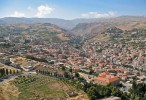Nigel Teasdale
Dubai may have lost its exclusive cachet forever as a result of a new focus on discounted leisure business, but this will be positive for the industry, says Nigel Teasdale from Vision Hospitality Asset Management
One of the interesting and much discussed trends in the region’s hotel performance over recent months has been the ability of Dubai hotels to react quickly to the global downturn in corporate and meetings business, and to replace this with leisure business.
The key factor favouring Dubai hotels in this regard has been the international route network of Emirates with Dubai at its hub. Emirates has seat capacity, the hotels have bedroom inventory, and tour operators and on-line booking companies are willing participants. For properties with a beach front location this has been an easier sell, but many first time Dubai visitors have been content with an inviting pool sun deck and the opportunity to explore the city.
Of course this has all come at a price, a short-term price and a long-term price. The short-term impact has been a severe fall in the average rate achieved by the participating hotels. In the long-term, the price of this radical change in business mix is likely to be that Dubai loses it cachet as an exclusive destination.
Exclusive or mass market?
Is this a bad thing? Well let’s consider the concept of Dubai’s exclusivity for a moment.
Many of the city’s planned developments involve theme parks, indeed if the majority of attractions of this nature that have appeared on master-plans are realised, Dubai will rival Orlando as the global theme park destination. To prosper, theme parks are reliant on mass tourism and all the components that support it, such as low cost airlines, budget hotels, bus transport and fast food outlets. None of these components sit comfortably with the exclusive tag.
So if Dubai was always to become a mass market destination, it may be that this shift of emphasis to discounted leisure business needed to take place and that the global recession merely hurried the process on. Taking this on board, what are the implications for existing Dubai hotels and for those in the pipeline?

Advertisement
Pipeline implications
As and when the global recession eases there is every reason to believe that demand in Dubai’s corporate sector will recover. However, it is unlikely that, in real terms, rates will scale the heights that were typical prior to 2009, as the budget of many business travellers will be restricted.
The hotels that will benefit most from this recovery will be those best located and specified for the corporate market. MICE visitation is also likely to regain prominence, although the loss of cachet discussed above may have weakened the destination’s hand in the incentive market.
Those hotels where the offer is targeted more at the leisure sector may continue to enjoy good occupancies provided that the scheduled airlines continue to help with seat availability.
If, however, the corporate upturn leads to lower availability from this source, these hotels may be increasingly reliant on the region’s budget carriers continuing to expand their route networks and capacity.
Either way, rate recovery is likely to be even more challenging than for the more corporate focused hotels.
Manageable challenges
Given all of this, it may be fair to suggest than many Dubai hotels are over specified for the client base they are now serving. As a result, operators may face a challenge applying the operational efficiencies required to keep these hotels converting revenue to profit competitively. However, there are many clever operators out there and these issues are not insurmountable, particularly if the owners seek the help of sector specialists such as asset managers.
While this challenge may be felt most acutely in Dubai, it applies to a lesser extent in many other Middle Eastern destinations, and the point at which one would expect this shift to be reflected is in the specification of upcoming hotels. We should anticipate an emphasis on hotels tailored primarily towards the mid-bracket leisure traveller and the more budget conscious business traveller.
STR Global’s recently published data on this subject makes interesting reading. It shows, as at August 2009, the total of affiliated bedrooms in the active pipeline (in construction, or planning) in the Middle East breaks down as follows:
• Luxury & upscale 88,326 (88.2%)
• Midscale & economy 15,399 (11.8%)
(For a complete list of projects in the UAE, contact STR Global at info@strglobal.com )
We must hope that developers take note, and that a good proportion of these planned luxury and upscale projects can be re-specified to offers that reflect a changing client base.









 Search our database of more than 2,700 industry companies
Search our database of more than 2,700 industry companies









